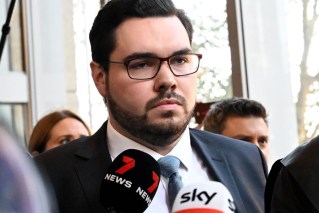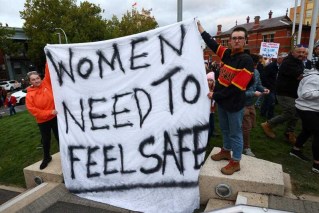GPs against Medicare rebate cuts

Doctors have warned that unless the federal government reverses course on changes to general practice, sick Australians could face long waits for care like those seen in the UK.
Britain’s National Health Service is in crisis as patients swamp emergency departments, causing blow-outs in waiting times and forcing hospitals to cancel operations, call in extra staff and ration access to care, the Australian Medical Association says.
• The violent, traumatic reality of our hospitals
• Battling the booze: how ‘normal’ is your drinking?
AMA Vice President Stephen Parnis has warned similar scenes could be repeated here unless the Federal government stops its “attack” on general practice.
Changes to Medicare, unveiled last month, include a $20 cut to the Medicare rebate for GP Level B consultations lasting less than 10 minutes, from $37.05 to $16.95, which is due to come into effect on January 19.
A further $5 cut to GP rebates comes in from July 1, on top of a near-six year freeze on Medicare rebate indexation.
Dr Parnis believes these changes will lead to increased out-of-pocket expenses for patients and higher health costs.
He says the UK experience shows that when governments cut investment in primary health care, it means more people end up going to hospital.
“They are sicker, and they are much more expensive to treat,” he said.
The warning comes as a poll of almost 1100 doctors by Australian Doctor magazine voted former health minister Peter Dutton the worst health minister in the last 35 years.
Mr Dutton took on the health portfolio after the 2013 federal election but was moved to immigration and border protection in last month’s ministerial reshuffle, when Sussan Ley became health minister.
Greens senator and former GP Richard Di Natale said the public would inevitably pay more to see the doctor.
“That is a prescription for putting healthcare out of reach for ordinary Australians and making the health system much more expensive over the long term,” he told reporters in Melbourne.
“What we need to do in our health debate is to come up with some constructive proposals that ensure that our health system becomes more sustainable over the long term and fairer.”
He said the Greens would move to disallow the government’s reforms when the Senate resumes.
The cost increases would impact the poor and underprivileged the most, says Dr Michael Levick, Chair of General Practice at the Victorian branch of the Australian Medical Association.
More people would turn up at already stretched hospital emergency rooms where they knew they could get free medical care, he said.
“It’s going to affect the people with mental disorders, the people with drug and alcohol abuse, migrants that haven’t got jobs yet, refugees and all the underprivileged in our community,” Dr Levick told reporters on Tuesday.
“They (patients) are pretty horrified on the attack on their general practice and their health.”








